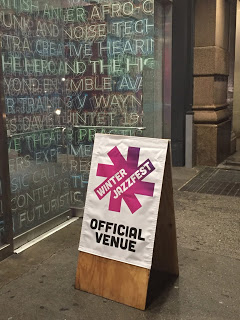This year’s 14th annual Winter Jazzfest – now a sprawling eight day affair featuring over 600 musicians – was themed “Social Justice Engagement,” and indeed, there was a sense of urgency in the air. The message was carried by the musicians in projects like Marc Ribot’s Songs of Resistance, captured in talks like “The Long March” with Archie Shepp, and encapsulated in many of the performances throughout the week.
Friday, January 12th
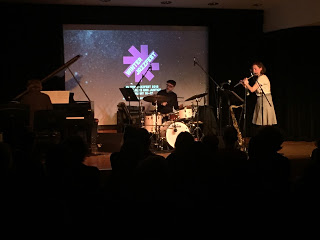 |
| Matt Mitchell (p), John Hollenbeck (d), Anna Webber (f + s) |
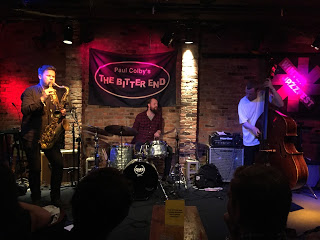 |
| André Roleighten (s), Gard Nilssen (d), Petter Eldh (b) |
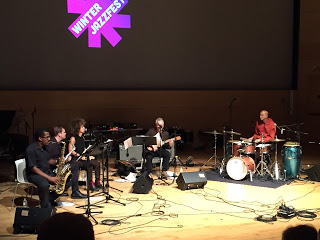 |
| James Brandon Lewis (s), Briggan Krause (s), Domenica Fossati (v,f), Marc Ribot (v,g), Shahzad Ismaily (d) |
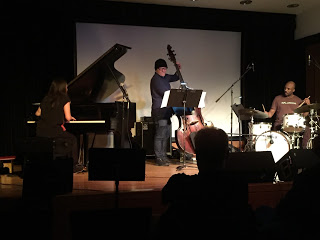 |
| Mara Rosenbloom (p), Sean Conly (b), Chad Taylor (d) |
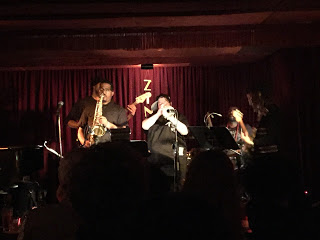 |
| Luke Stewart (b), James Brandon Lewis (s), Jamie Branch (t), Warren Trae Crudup III (d), Anthony Pirog (g) |
Tuesday, January 16th
I missed the second day of the marathon, but I thoroughly interrogated several attendees, and I’m confident that it was another good night of music. I rejoined on Tuesday for Tyshawn Sorey and Nicole Mitchell at Le Poisson Rouge.
Flutist and composer, Mitchell, who was the artist-in-residence for the festival, performing several times over the week, was this night leading her current Black Earth Ensemble octet. It was a great, wide-ranging performance, though marred a bit by tinny sound. Mitchell’s Mandorla Awakening II: Emerging Worlds was one of 2017’s more celebrated albums (it certainly figured highly on this blog’s top 10’s) and her group, with outstanding musicians like violinist Mazz Swift, cellist Tomeka Reid, and vocalist avery r young, performed it with passion. Set in the fictional context of a utopian island within a planet beset by a warring, polluting, and dying civilization, the text asks questions of reconciling technology and nature. Though I didn’t follow the narrative closely, I enjoyed the range of instruments and moments of searching leading to other moments of exhilaration.

